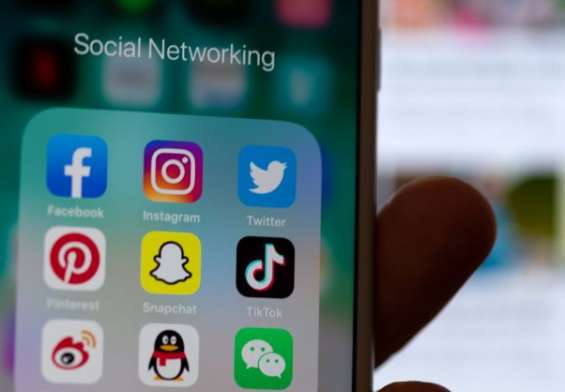Have you ever done something you regret when you were younger? Of course you have, it’s just a fact of life and growing up. But it’s different for today’s young people, especially minors, because of the internet and the content we can post online. When you post content online, chances are it’s there forever. Fortunately, certain places like California have introduced ‘eraser button laws’ that give minors the opportunity to remove their digital content from websites and social media platforms. In California, it’s been a law in effect since January 1st, 2015, and plays a huge role in protecting young people from the lasting effects of their online behavior. This article will discuss what the eraser button law is, its effectiveness, and its broader implications for online privacy and digital safety.
The History Behind Senate Bill 568
Originally known as Senate Bill 568, the eraser button law was signed by then California Governor Jerry Brown in 2013. It was designed during a time when social media and user generated content were still relatively new and exploding in popularity, which led to mounting concerns over minors’ vulnerability. As more and more young people started using the internet and social media, it made much more room for them to make inappropriate or embarrassing posts that could damage their futures.
The eraser button law California gives minors, under the age of 18, the right to have the content they posted be removed from websites and online services. Notably, the law applies to platforms like Facebook, Twitter, Instagram, and others where minors can create and share content.
The Senate Bill 568 eraser button was created with two purposes in mind: First, it gives minors more control over their internet presence by allowing them to delete content that could harm them in the future. Second, it prevents adult products, like alcohol, tobacco, and tattoos from being marketed to minors on these digital platforms.
How the Eraser Button Law Works
Under the eraser button laws, websites need to give minors clear instructions on how they can request their content be removed. If they have an account on the platform, minors are given the option to erase their posts, comments, and pictures. However, there are some limitations to the law.
Minors can remove content they personally uploaded; but the law doesn’t apply to content shared by third parties. For instance, if someone else shares or reposts a minor’s content, the original minor can’t have that reposted content removed. Additionally, the law doesn’t guarantee the removed content gets permanently deleted from the platform’s backend. The platforms may keep it around for internal or legal purposes.
California’s eraser button law doesn’t prevent others from capturing or sharing content before it’s deleted, either. Therefore, it’s important to teach minors about their digital footprints and that sharing certain content online can have long-term consequences.
Senate Bill 568’s Impact on Minors and Webmasters
The Senate Bill 568 eraser button changed the game significantly for minors and webmasters. It gives minors a second chance to clean up their online presence, so they can avoid long-term consequences from posts they made before turning 18. Colleges and employers tend to look at social media profiles and activity when selecting candidates, meaning the eraser button law can be a big help.
For webmasters, the online eraser law adds new responsibilities. Websites need to make sure they have a system in place for processing content removal requests from minors. Additionally, they need to stay on top of evolving privacy laws and compliance requirements. Legal repercussions, including fines or lawsuits, can result from noncompliance with these laws and requirements.
The Eraser Button Law’s Criticisms and Limitations
While the law is a step in the right direction, it does have some critics, who argue that it doesn’t do enough to ensure complete privacy for minors. Let’s say a minor gets their content removed successfully. That same content could still exist in other forms, like screen captures or reposts. Additionally, while the law requires websites to remove the content, it doesn’t require them to delete removed content from their servers completely. This doesn’t do very much to teach minors about the risks of sharing their personal information online either. As a result, many think that digital privacy laws need to be developed further, and that there needs to be more tools for protecting minors online.
Future of Online Privacy Laws for Minors
In the future, more legislation meant to protect minors online could be based on the online eraser law. More and more people are learning the risks of having a permanent digital footprint, so other states may introduce similar laws. In fact, there’s a big push for federal laws that would expand the online eraser law beyond just California.
As a result, webmasters need to stay on top of these changes in privacy laws. Implementing automated systems that allow users to easily ask for their content to be removed, making sure to comply with legal requirements, and educating users about their privacy options are all important steps. A more robust digital footprint protection law can help minors and adults manage their online presence more effectively.
What the Online Eraser Law Means for You
The eraser button law California isn’t a perfect solution for protecting minors online, but it’s a step in the right direction. It gives minors a powerful tool they can use to control their digital presence, but it doesn’t guarantee the removed content is erased completely. For webmasters, the law adds new responsibilities to protect minors’ privacy while complying with other online privacy laws.
Ultimately, the Senate Bill 568 eraser button should remind you that the internet is a permanent space, and every post, picture, or comment has the potential to last forever. Young people should be taught how to erase online content for minors responsibly, and more importantly, how to think critically before sharing personal information online.





